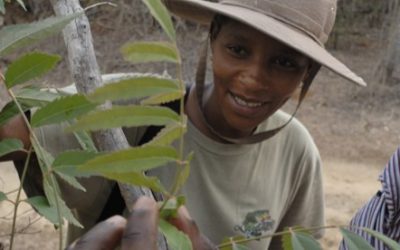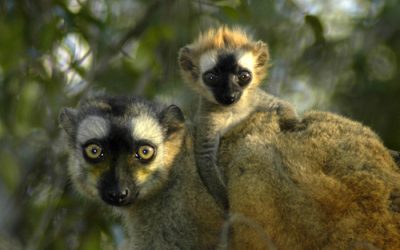Making citizen science data work for conservation in Africa
A new cohort of conservation practitioners and citizen science managers are now equipped with expertise to guide conservation using citizen science data. Our innovative training course brought together twenty-one managers from across Africa who gained new skills in communicating their results to inform policy and management.
“Imagine a young enthusiast, binoculars in hand and a notebook ready, venturing into a local forest or bird-watching in a nearby park” said Anthony Kuria, one of the workshop teachers, “This is the essence of citizen science — ordinary people driven by curiosity and a love for nature gathering valuable data that help us understand and protect the intricate web of life”.
![Wattle Eye (bird)[RosieTrevelyan]](https://tropical-biology.org/wp-content/uploads/2024/09/Wattle-Eye-birdRosieTrevelyan.jpg)
Participants on the training course gained first-hand insights into the value of citizen data – such as how it can track shifts in species populations and detect emerging threats. They learnt how this information could be packaged and presented to managers and other decision makers to guide conservation efforts and strategies to protect endangered species and their habitats.
The Tropical Biology Association ran the course in partnership with the Kenya Bird Map, the Nigerian Bird Atlas Project, and other partners. It is funded by the UK Government through Darwin Initiative and was an energising precursor to the launch of the partnership’s new online platform — Kenya Bird Trends — that offers for the first time a portal for over 50 years of citizen science bird data. Hosting the launch, the Director General of the Kenya Wildlife Service, Dr Erustus Kanga said “the Kenya Bird Trends Online Platform marks a new era in our conservation efforts. It is a call to action for all of us—citizens, scientists, policymakers, and conservationists—to … secure the future of Kenya’s birds.” We will report on this in our next news piece.



